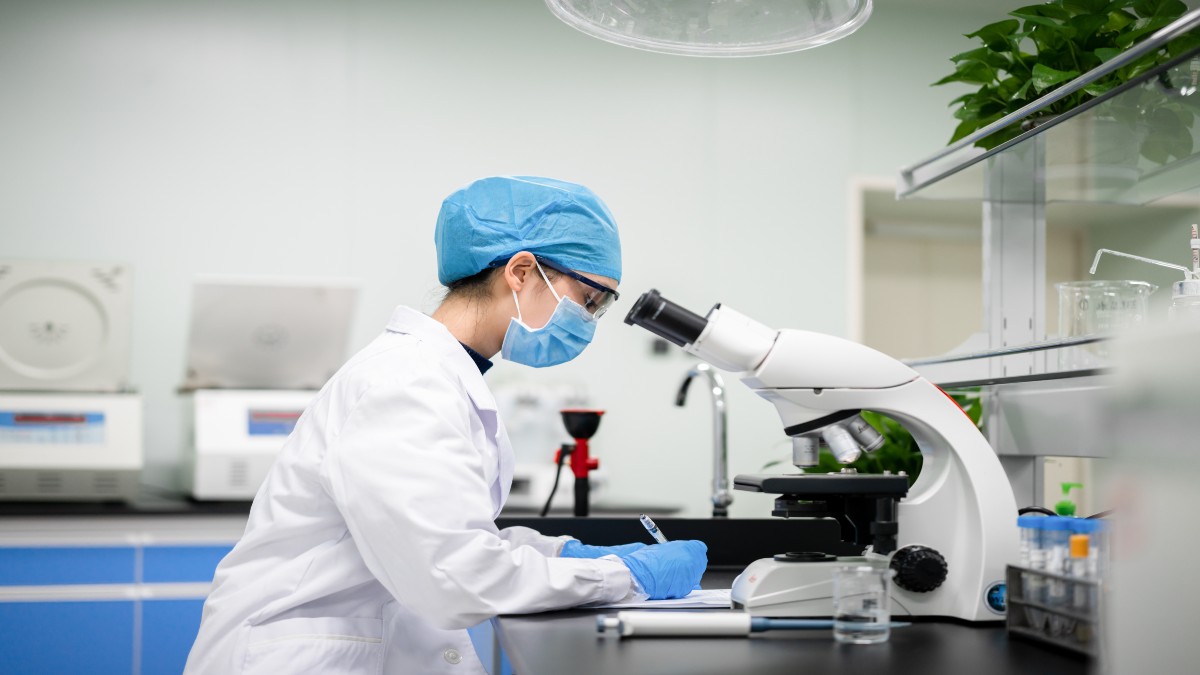PharmAust confirms cash boost for Phase 1 trials, with ATO approval for federal R&D refund

The R&D refund provides PAA with timely cash support as it advances its exciting clinical trial pathway. Image: Getty
The R&D refund provides PAA with timely cash support as it advances its exciting clinical trial pathway.
Clinical stage biotech PharmAust (ASX:PAA) continued its run of positive news flow this morning, with confirmation of a federal R&D refund for FY21.
The refund will give PharmAust a timely cash boost of $708,112.79, as it gets set to commence Phase I clinical trials to examine the effects of its lead drug, monepantel (MPL), on motor neuron disease and COVID-19.
PAA’s refund followed a successful application with the Australian Taxation Office (ATO) for the research & development rebate.
The rebate is a function of the federal government’s R&D Tax Incentive scheme, which is carried out in conjunction with the ATO.
The program gives eligible companies the right to offset up to 43.5% of expenses on R&D activities.
In that context, it marks formal approval by the ATO of the advanced R&D and innovative medical practices that PharmAust is developing through two wholly-owned subsidiaries, Epichem Pty Ltd and Pitney Pharmaceuticals Pty Ltd.
Commenting on the R&D refund, PharmAust finance director Sam Wright said the funds will assist the company on the successful execution of its Phase 1 trial.
“We appreciate the continued support and acknowledgement by the Australian Government for the critical work undertaken in our R&D programs,” Wright said.
“The receipt of the R&D refund strengthens PharmAust’s financial position to execute on our upcoming clinical trials.”
The Motor Neurone Disease clinical trial
The Phase 1 trial of MND follows a $880k funding commitment from AFL-linked charity, FightMND.
Founded in 2014, FightMND was established in Australia with the purpose of finding effective treatments and ultimately a cure for MND, also referred to as ALS or Lou Gehrig’s Disease.
It’s a disease in which the nerve cells (neurones) controlling the muscles that enable people to move, speak, swallow and breathe fail to work normally.
The clinical trial will specifically look for signs that MPL can slow the progression of MND.
If effective, MPL could reduce the rate of degeneration and loss of motor neurons in the anterior horns, and motor nuclei of the brainstem for affected patients.
Principal Investigators Professor Dominic Rowe and Dr Sue Mathers will recruit patients and oversee the trial, which will determine whether MPL should go on to be tested in larger Phase 2 studies.
The MND clinical trial is on track to commence in late May.
The COVID-19 trial
Meanwhile, PharmAust has also demonstrated MPL’s antiviral effectiveness in three independent laboratories carrying out both primate and non-primate studies.
In July last year, the company announced that these laboratories have completed examining the effectiveness of MPL on SARS-CoV2 infection, which is the causal agent of COVID-19 disease.
PharmAust is now keen to see if those remarkable results can be replicated in humans.
PharmAust has engaged Ergomed Clinical Research, a subsidiary of the London Stock Exchange listed Ergomed plc (LON: ERGO) to commence the trials, with the UK-based firm already identifying seven hospitals in five countries eager to host and conduct the trials.
From this list, at least six sites in up to four countries will be selected and finalised.
Ergomed has also set out the primary endpoints for the trials – which include assessing the effect of MPL in reducing SARS-CoV2 viraemia, as well as determining the dose to use for a later Phase 2 study.
The trials will then evaluate patient responses and look to describe any improvements from COVID-19 symptoms, and the time it takes to do so.
This article was developed in collaboration with PharmAust, a Stockhead advertiser at the time of publishing.
This article does not constitute financial product advice. You should consider obtaining independent advice before making any financial decisions.
UNLOCK INSIGHTS
Discover the untold stories of emerging ASX stocks.
Daily news and expert analysis, it's free to subscribe.
By proceeding, you confirm you understand that we handle personal information in accordance with our Privacy Policy.








